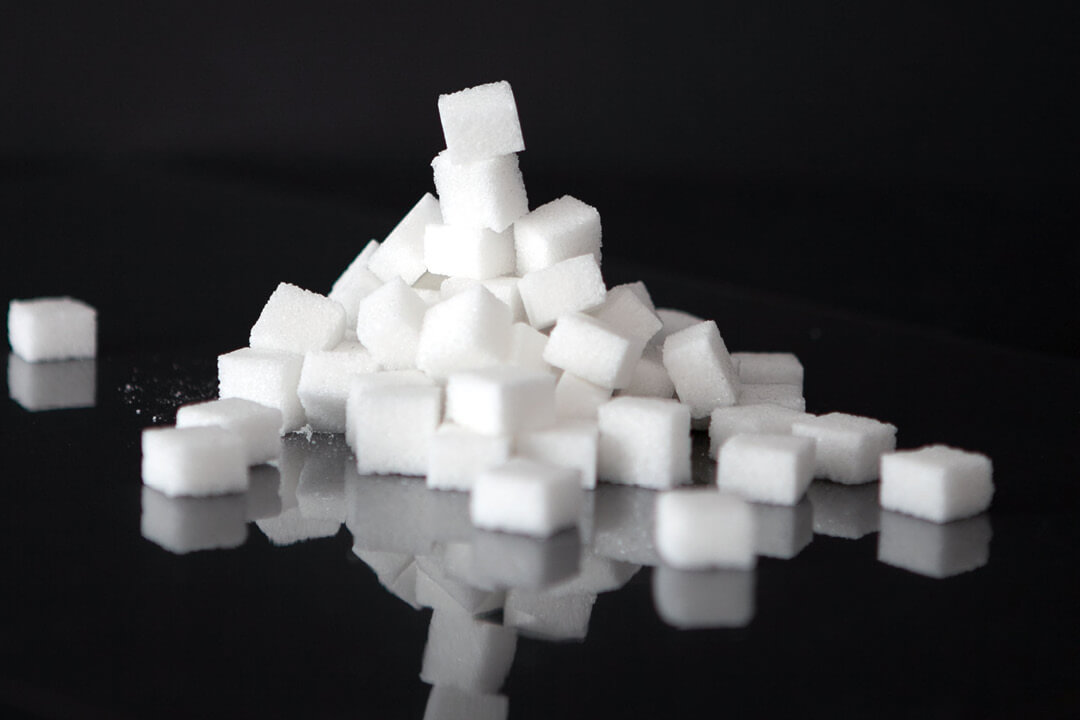Sugar is on everyone’s lips – too much of it
We are all used to indulging ourselves with sugar: The birthday cake, the chocolate truffles for Valentine’s Day, the gingerbread at Christmas. To keep this fun for a long time, it’s worth being a little more careful with sugar.
Everything on sugar!
The feature film“Alles auf Zucker!” by Dani Levy is a little older, but with its wit and affectionate characterizations of the two Jewish families from Berlin and Frankfurt am Main, it’s a classic that you can watch again and again.
However, the warnings of many doctors and researchers that we all consume far too much sugar have gone unheeded for decades.
When it comes to sugar (Sugar – Consumption at a Crossroad), the (former) Credit Suisse, which is otherwise often optimistic in its research, comes to the conclusion that the healthcare systems of many countries, such as the USA, will be overwhelmed in a few decades by the costs of treating diabetes mellitus and obesity, to which many researchers believe sugar consumption contributes significantly.
Broad-based measures to combat excessive sugar consumption appear to be unsuccessful in many societies. Positive news only for some biopharma stocks, not for the rest of the world.
Will Barbara Becker make it?
With her latest book “Optimize your Sugar”, the ex-wife of Boris Becker, who these days is always mentioned in the same breath as the fitness icon, is trying to convince the world that it can be enlightening for everyone, no matter how young and fit they are, to continuously measure their blood sugar levels and observe how eating certain foods affects them.
The book will probably end up on the Spiegel bestseller list, because her advice to “always eat salad before a meal and take a teaspoon of apple cider vinegar before meals” is easy to swallow.

Your book highlights an important issue: Millions of people are, unbeknownst to them, in a pre-diabetes phase, meaning they are well on their way to developing type 2 diabetes in a few years. Excessive sugar consumption is seen by many doctors as the cause of this.
How much is enough?
Three professional societies (the German Nutrition Society (DGE), the German Obesity Society (DAG) and the German Diabetes Society have agreed on an upper limit: No more than 50 grams of total sugar per day.
In Germany, women exceed this limit by 40 percent on average, men by 30 percent and children by 75 percent. The latter are particularly affected by sugared soft drinks, which are particularly fatal as they do not provide satiety.
Fatty liver disease in children is no longer a rarity. This is because, unlike glucose, which is broken down in the intestine, fructose requires the liver to process it. Fructose is found in fruit or honey, for example, but can also be produced industrially at very low cost.
Fructose is therefore found in almost all industrially produced foods such as soft drinks.
The desire to eat fewer calories and to look out for the “reduced fat” label when shopping has further increased the proportion of many types of sugar in food. To compensate for the lack of taste of fat, many foods contain more and more sugar. The values for this can be found on every food packaging. But who has time to study every label carefully instead of doing the weekly shop as quickly as possible?
The sugar wave is getting bigger and bigger
If you reach for an apple juice spritzer instead of a cola and think you have made the healthier choice, you are falling into the sugar trap in a double sense. Apple breeders follow the wishes of the majority of consumers, who prefer sweet apples to sour apples. The sugar content of an apple juice spritzer is dizzying and now almost covers the daily sugar requirement.
We all get used to more and more sugar every day without realizing it.

The numerous English and American doctors and researchers who describe sugar as a drug are always confronted with counter-studies financed by the sugar industry. Their argument is: “A calorie is a calorie. Sugar should not be demonized.” The success of this argument can be seen, for example, in the ARTE documentary “The big sugar lie“.
Thoroughbred Japan has responded with a large-scale monitoring program, as the healthy traditional Japanese diet is increasingly being replaced by Western food and fast food. As a result, diabetes figures are also rising sharply in the country of many centenarians.
In Japanese companies, employees can be tested by mobile medical teams: Their waist circumference and insulin resistance are measured. For some, this is a warning shot that works.
Anyone who thinks that a daily glance at the scales and mirror is enough is unfortunately mistaken. Even top athletes or slim people can consume too much sugar and thus contribute to diseases such as fatty liver, cardiovascular disease, diabetes or other very serious illnesses.
Alternatives?
Twelve sugar substitutes are currently approved in the EU alone. There are no long-term studies on their effects. Unfortunately, cane sugar and other forms of brown sugar only look healthier. The same goes for honey and maple syrup.
Ayurveda recommends different forms of sugar depending on the constitution and type, such as palm sugar or jaggery, which is made from sugar cane, date palms, sago, coconut palms or other plants by boiling down the syrup.
We have tried it: The sweetness is somewhat mellowed and unfamiliar with jaggery, but we got the impression that the desire to consume more sweetness after the sweet treat is reduced.

Less and more bitter
There is only one way to ensure that our appetite for sweets remains safe, because who doesn’t love the products of a good bakery or a top chocolatier: enjoy less and enjoy good things consciously.
- Fresh food instead of industrially manufactured products
- No soft drinks with added sugar
- Prefer coffee without sugar, syrup, cream or sweetened milk
A former favorite Italian restaurant of GloriousMe in Frankfurt am Main, which unfortunately no longer exists, always served a salad as the first dish, which consisted of many bitter types of lettuce and vegetables and was served with an apple cider vinegar dressing.
Even if we couldn’t find an evidence-based study on this: We are sticking to Da Claudio’s recommendation, which we have done well with so far, and are taking the sugar shock as an opportunity to follow the additional recommendation of all diabetologists and endocrinologists: Exercise. Exercise. Exercise.
#Advertising #ProductPlacement #IndependentRecommendation #BecauseWeLoveIt
Photography © GloriousMe




